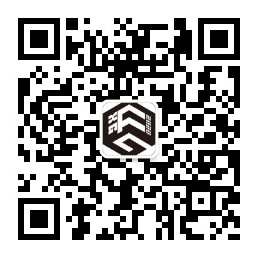
在个人关系中,我们常会遇到这样一种思维逻辑:“我是弱者,强者就应该帮助我。”这似乎带有某种道德劝诫的意味,但仔细想想,这明显违背了丛林生存法则。在自然界,弱肉强食是基本原则,弱者必须通过努力、智慧和适应能力生存,而不是寄希望于强者的无条件施舍。
如果将这一思维转换到国与国之间的关系,问题就更加复杂了。在现代国际社会中,有些国家长期持有“弱国思维”,即将自身的弱势地位视为向其他国家索求的理由,甚至将帮助视作理所应当,形成了一种“你不帮助我就是你的错”的思维模式。这种逻辑是否合理?长期持有这样的态度是否可持续?答案显然是否定的。

弱者思维的本质
弱者思维的核心在于依赖性,而不是自主性。这种思维模式容易导致以下后果:
- 心理上的惰性
持有弱者思维的个人或国家,会将自己置于被动地位,习惯性依赖外部力量解决问题,而不是通过内在努力改变现状。 - 道德绑架
当帮助成为一种“义务”,而非基于互利的选择时,受帮助的一方可能不再感恩,反而理直气壮地索取更多。这种道德绑架往往让“强者”感到不适,并逐渐削弱合作意愿。 - 互信关系的削弱
由于弱者思维通常缺乏“投桃报李”的意识,帮助一方可能感到自己的善意被滥用,进而影响双方的长期合作基础。
从个人到国际:弱者思维在外交中的表现
在国际外交中,弱者思维的表现尤为突出,尤其是在某些依赖外援的发展中国家中。这些国家往往在有求于强国时,表现出极大的谦卑与合作态度,但一旦获得好处,便开始对其“盟友”采取疏离甚至不友好的行为。以东南亚某国为例:
- 双面外交的短视行为
在需要中国援助时,极力强调两国“铁杆友谊”;然而,在获得支持后,却通过不合理的政策大肆收割在该国的中国公民。这种行为显然是一种短视的“欲取欲求”模式。 - 无附加条件援助的隐患
中国一贯强调“无附加条件援助”的原则,这是出于对国际关系的尊重和共赢理念。然而,当援助成为单方面的给予,接收方却无回馈意识时,合作的天平便失去了平衡,长期来看不利于区域稳定与发展。

投桃报李:国际合作的智慧之道
无论是个人交往还是国际外交,真正的智慧在于“投桃报李”。一个有远见的国家或个人,懂得珍惜来之不易的帮助,并以实际行动回报对方,从而形成良性循环的合作关系。
- 合作的平衡
国际合作的基础是平等与互利。一方的帮助应以另一方的积极回馈为前提,从而确保资源投入的可持续性。 - 长远眼光的培养
那些习惯性依赖外援的国家需要认识到,短期内的援助无法解决根本问题。只有通过自主发展,摆脱对外部力量的依赖,才能真正实现国家的长远利益。 - 建立互信机制
国家间的互信需要时间和行动来建立。接收援助的一方可以通过合理政策、开放合作等方式,向援助方展示诚意与尊重,从而吸引更多资源和支持。
反思与启示:弱者思维的代价
持有弱者思维的国家,虽然在短期内可以通过道德绑架或外交手段获得利益,但从长远来看,这种行为模式必然会损害其国际形象和可信度。
以中国与东盟十国的合作为例,中国在援助东盟各国时,坚持互利共赢的原则。然而,部分国家在获得援助后,却采取对华公民或企业不友好的措施,实际上是透支了双方的合作潜力。如果这种“得利即疏远”的行为继续下去,不仅可能影响区域内的经济合作,还可能使自身在国际社会中的形象受损。

结语:以平等心态共建未来
弱者思维虽然看似是一种保护机制,但长久来看,只会让人或国家失去独立性和尊严。在现代社会,强者帮助弱者是出于善意,而不是义务;弱者的回馈则是对这种善意的尊重。
国际关系中,尤其需要抛弃单方面索求的弱者思维。唯有以平等、互信和投桃报李为基础,才能形成健康的合作生态。东南亚某些国家若能以长远目光审视自身与中国的关系,将铁杆友谊延伸为实际行动,无疑将为其自身发展和区域繁荣注入更多动力。
英文正文
From Weakness Mentality to International Diplomacy: Reciprocity as a Visionary Path
In interpersonal relationships, we often encounter the logic: “I am weak, so the strong should help me.” While this notion carries a certain moral undertone, it contradicts the basic survival rules of the jungle. In nature, the principle of the survival of the fittest dictates that the weak must strive, adapt, and find ways to survive rather than rely on the unconditional generosity of the strong.
When this mindset is transferred to relationships between nations, the issue becomes even more pronounced. Some countries have long adopted a “weak nation mentality,” using their disadvantaged status as a reason to demand assistance from others. Worse, they sometimes perceive aid as an entitlement, leading to a mindset where failure to provide help is deemed unjust. But is this mindset reasonable? Can such attitudes sustain in the long run? The answer is clearly no.
The Essence of Weakness Mentality
At its core, weakness mentality is characterized by dependency rather than autonomy. This mindset leads to several consequences:
- Psychological Laziness
Individuals or nations with this mentality place themselves in a passive position, habitually relying on external support rather than seeking internal solutions to improve their situation. - Moral Coercion
When aid becomes an “obligation” instead of a voluntary act of mutual benefit, the recipient may cease to be grateful, instead demanding even more. This moral coercion often discourages the helper and weakens their willingness to cooperate. - Erosion of Mutual Trust
Without a sense of reciprocity, the helping party may feel exploited, eroding the foundation of long-term collaboration.
From Individuals to Nations: Manifestations in Diplomacy
Weakness mentality is particularly evident in international diplomacy, especially among nations heavily reliant on foreign aid. A notable example can be observed in certain Southeast Asian countries:
- Short-Sighted Diplomatic Practices
When these nations need aid from stronger powers like China, they highlight “ironclad friendships.” However, after securing assistance, they implement unfriendly policies against Chinese citizens or businesses within their borders. - Pitfalls of No-Strings-Attached Aid
China’s long-standing principle of “no-strings-attached aid” reflects its respect for mutual benefits and sovereignty. However, when aid is perceived as unilateral generosity without reciprocal efforts, it undermines the balance necessary for sustainable partnerships.
Reciprocity: The Wisdom of Collaboration
Be it in personal relationships or international diplomacy, the essence of sustainable partnerships lies in reciprocity. A visionary individual or nation recognizes the value of returned goodwill, fostering a virtuous cycle of cooperation.
- Balanced Cooperation
Successful international cooperation is grounded in equality and mutual benefits. Aid should be accompanied by active reciprocal efforts from the recipient, ensuring sustainable resource allocation. - Fostering Long-Term Vision
Nations accustomed to dependency on foreign aid must realize that short-term assistance cannot resolve fundamental issues. Only through self-reliance can they secure lasting benefits. - Building Trust Mechanisms
Trust takes time and action to cultivate. Aid-receiving nations can demonstrate sincerity and respect through fair policies and open cooperation, attracting more support and resources.
Reflection: The Cost of Weakness Mentality
Countries entrenched in weakness mentality may temporarily benefit through moral coercion or diplomatic maneuvers. However, in the long run, this behavior inevitably damages their international reputation and credibility.
For instance, China’s cooperation with ASEAN exemplifies mutual benefit. While China consistently upholds a win-win approach, some nations exploit aid while implementing unfriendly measures toward Chinese citizens and businesses. Such “gain and drift away” practices deplete the potential for deeper collaboration and harm regional economic cooperation.
Conclusion: Building the Future with Equality
Although weakness mentality may seem like a protective mechanism, it ultimately undermines independence and dignity. In modern society, the strong help the weak out of goodwill, not obligation; the weak, in return, should show respect by reciprocating that goodwill.
In international relations, abandoning the mentality of unilateral entitlement is crucial. By fostering equality, trust, and reciprocity, nations can create healthier ecosystems of cooperation. Southeast Asian countries, for instance, could strengthen their ties with China by extending their “ironclad friendship” into actionable partnerships, fueling their development and regional prosperity.
声明:本站所有文章,如无特殊说明或标注,均为本站原创发布。任何个人或组织,在未征得本站同意时,禁止复制、盗用、采集、发布本站内容到任何网站、书籍等各类媒体平台。如若本站内容侵犯了原著者的合法权益,可联系我们进行处理。
Statement: Unless otherwise specified or noted, all articles on this site are original publications by our platform. Any individual or organization is prohibited from copying, stealing, collecting, or publishing the content of this site on any website, book, or other media platform without obtaining prior permission from us. If any content on this site infringes upon the legitimate rights of the original author, please contact us for resolution.




